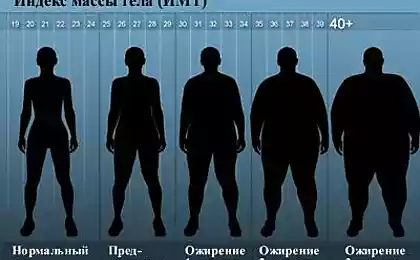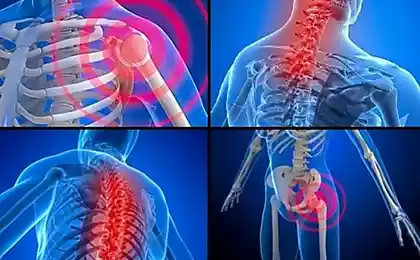465
Pain, obesity and loneliness: why the long commute is killing us
Seventy two million five hundred eighty six thousand one hundred fifty one
© Mu Boyan
What harm may cause long road to work: often many accompanying negative factors are not taken into account — as well as the loss of scarce free time. The situation was much more threatening than one would assume.
In 2011, researchers from the Umea University in Sweden announced a startling discovery: in marriages where one partner commutes to work more than 45 minutes, the chance of divorce increases by 40%. Scientists can't say why. Perhaps the data indicates that these workers are poor or poorly educated — both factors are critical to maintaining the relationship. Perhaps a long time in the road exacerbates the inequality in marriage, when one partner is forced to devote most of his time caring for the children while the other is constantly away from home. But perhaps the Swedes are just misleading us with that and so already all have long known — the long road to the robot causing us harm. And even more than you can imagine.
In 2006, Nobel laureate Daniel Kahneman with his colleagues surveyed 900 Texan women, recording their level of satisfaction from different activities throughout the day. In the first place was sex, then people after work. Morning the way to the workplace was at the very end of the list.
"Scientists at the University of California have identified a disturbing pattern: the number of overcome each day, the distance directly affects the incidence of obesity — more than than all the other life factors that they studied".
Long journeys make us lonely. Writer and Professor of political science at Harvard, Robert Putnam distinguishes these daily transactions as one of the surest signs of social isolation. Every ten minutes on the road by 10 percent reduce the level of development of our "social relations".
Moreover — it is harmful to our health. Scientists at the University of California have identified a disturbing pattern: the number of overcome each day, the distance directly affects the incidence of obesity — more than than all the other life factors that they studied. Over the past 10 years we have accumulated enough data on the impact of long journeys: they cause the attacks of pain, stress, overeating and dissatisfaction. 40% of people who spend way more than ninety minutes, of experiencing anxiety. Among those who spend no more than ten minutes, the same feeling shared by only 28%.
Is it worth such torment, spacious home in the suburbs or lower rents? Probably not. In 1965 the economist John Kane wrote that "in deciding on long journeys to work, households lose both in time and resources," and should require compensation. Time is one of the most scarce human resources, which very often is not taken into account.
Don't take it lightly. People who say, "my commute is killing me!" is not an exaggeration. They look at things objectively.
Fully read the material about the dangers of a long journey to work on the website Slate.
Source: theoryandpractice.ru
© Mu Boyan
What harm may cause long road to work: often many accompanying negative factors are not taken into account — as well as the loss of scarce free time. The situation was much more threatening than one would assume.
In 2011, researchers from the Umea University in Sweden announced a startling discovery: in marriages where one partner commutes to work more than 45 minutes, the chance of divorce increases by 40%. Scientists can't say why. Perhaps the data indicates that these workers are poor or poorly educated — both factors are critical to maintaining the relationship. Perhaps a long time in the road exacerbates the inequality in marriage, when one partner is forced to devote most of his time caring for the children while the other is constantly away from home. But perhaps the Swedes are just misleading us with that and so already all have long known — the long road to the robot causing us harm. And even more than you can imagine.
In 2006, Nobel laureate Daniel Kahneman with his colleagues surveyed 900 Texan women, recording their level of satisfaction from different activities throughout the day. In the first place was sex, then people after work. Morning the way to the workplace was at the very end of the list.
"Scientists at the University of California have identified a disturbing pattern: the number of overcome each day, the distance directly affects the incidence of obesity — more than than all the other life factors that they studied".
Long journeys make us lonely. Writer and Professor of political science at Harvard, Robert Putnam distinguishes these daily transactions as one of the surest signs of social isolation. Every ten minutes on the road by 10 percent reduce the level of development of our "social relations".
Moreover — it is harmful to our health. Scientists at the University of California have identified a disturbing pattern: the number of overcome each day, the distance directly affects the incidence of obesity — more than than all the other life factors that they studied. Over the past 10 years we have accumulated enough data on the impact of long journeys: they cause the attacks of pain, stress, overeating and dissatisfaction. 40% of people who spend way more than ninety minutes, of experiencing anxiety. Among those who spend no more than ten minutes, the same feeling shared by only 28%.
Is it worth such torment, spacious home in the suburbs or lower rents? Probably not. In 1965 the economist John Kane wrote that "in deciding on long journeys to work, households lose both in time and resources," and should require compensation. Time is one of the most scarce human resources, which very often is not taken into account.
Don't take it lightly. People who say, "my commute is killing me!" is not an exaggeration. They look at things objectively.
Fully read the material about the dangers of a long journey to work on the website Slate.
Source: theoryandpractice.ru























